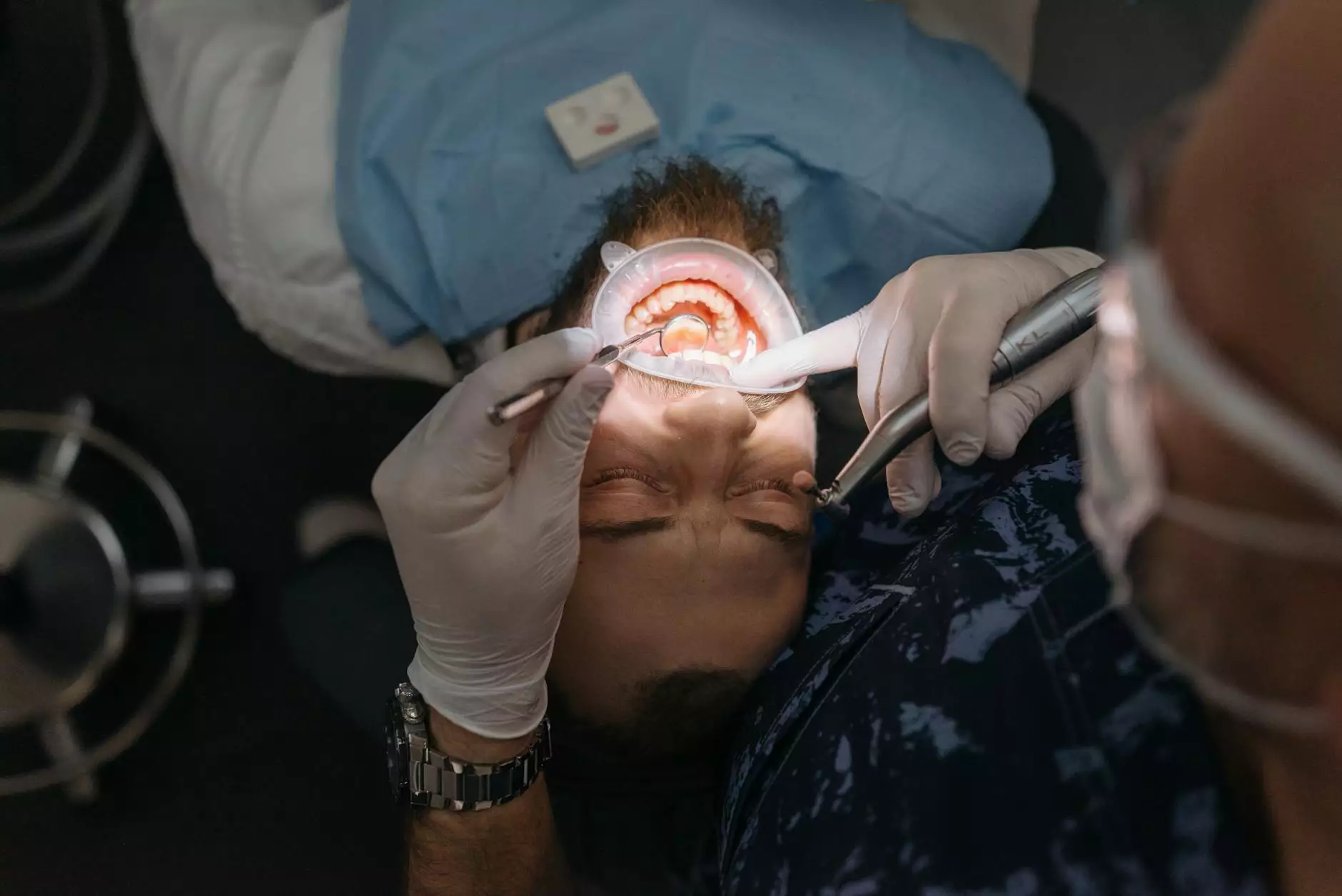The Essential Role of Medical Instruments in Modern Healthcare

Medical instruments are critical tools utilized in the healthcare industry, playing a fundamental role in diagnostics, treatment, and patient care. As technology continues to advance, the availability and sophistication of these instruments have transformed the healthcare landscape, making it imperative for healthcare providers to understand and leverage these resources effectively. This article explores the various categories and benefits of medical instruments, their market implications, and their pivotal role in enhancing the quality of care in the health and medical sector.
Understanding Medical Instruments
At their core, medical instruments refer to a wide array of tools and devices used in medical procedures. They range from simple tools like scissors and forceps to complex machines like MRI machines and robotic surgical systems. Their primary purpose is to aid healthcare professionals in delivering accurate diagnoses, performing surgical procedures, and monitoring the patient's health.
Categories of Medical Instruments
Medical instruments can be broadly categorized into several groups:
- Surgical Instruments: Tools used during surgeries, including scalpels, clamps, and needles.
- Diagnostic Instruments: Equipment used for diagnosis, such as stethoscopes, thermometers, and imaging technologies.
- Therapeutic Instruments: Devices that assist in treatment, including infusion pumps and physiotherapy equipment.
- Monitoring Instruments: Tools that track patient health, like pulse oximeters and heart rate monitors.
- Laboratory Instruments: Equipment used in laboratories for testing, including centrifuges, microscopes, and analyzers.
The Impact of Medical Instruments on Healthcare
The impact of medical instruments on healthcare is profound. They enhance the capabilities of healthcare professionals, leading to better patient outcomes. Here are some key benefits:
1. Improved Diagnostics
Accurate diagnosis is the cornerstone of effective treatment. Diagnostic instruments have revolutionized how diseases are detected and managed. For instance:
- MRI and CT Scans: Provide detailed images of the body's internal structures.
- Blood Test Analyzers: Deliver quick and reliable blood analysis, improving speed and accuracy.
With these advanced diagnostics, healthcare providers can make informed decisions swiftly, allowing for timely interventions that improve patient prognosis.
2. Enhanced Treatment Options
The evolution of medical instruments has opened new doors for treatment methods. Therapeutic instruments such as endoscopes allow for minimally invasive procedures, reducing recovery time and risk of complications. Additionally:
- Robotic Surgery: Increases precision and control during delicate surgeries.
- Targeted Drug Delivery Systems: Allow for precise administration of therapeutics, reducing side effects.
3. Streamlined Monitoring
Monitoring instruments enable continuous observance of patient vitals, facilitating proactive care. Technologies like wearable heart monitors and remote patient monitoring systems are examples that allow healthcare professionals to track health status in real-time, leading to quicker responses in emergencies.
4. Higher Quality of Care
Ultimately, the incorporation of advanced medical instruments enhances the overall quality of care. With better tools, healthcare providers can:
- Reduce Errors: More accurate instruments lead to fewer mistakes in diagnoses and treatment.
- Increase Efficiency: Streamlined processes reduce waiting times and improve patient flow.
The Health Market Landscape
The health market for medical instruments continues to grow exponentially. As the demand for quality healthcare rises, so does the need for advanced medical devices and tools. This growth translates into numerous market opportunities and challenges, which are crucial for stakeholders to understand.
Key Drivers of Market Growth
Several factors are driving the expanding market for medical instruments:
- Aging Population: An increase in the elderly population is leading to a higher prevalence of chronic diseases requiring medical interventions.
- Technological Advancements: Continuous innovations in instrument technology enhance performance and usability.
- Increased Healthcare Expenditure: Governments and private sectors are investing more in healthcare infrastructures, increasing demand for high-quality medical instruments.
Market Challenges
While there are numerous opportunities in the medical instruments market, certain challenges also exist:
- Regulatory Requirements: Meeting stringent regulatory standards can be time-consuming and costly.
- Competition: The market is saturated with numerous players, making differentiation difficult.
- Supply Chain Issues: Disruptions in the supply chain can lead to delays in production and distribution.
The Future of Medical Instruments
Looking ahead, the future of medical instruments appears promising. Several trends are shaping the future landscape:
1. Integration of Artificial Intelligence
The integration of AI into medical instruments is set to redefine diagnostics and treatment plans. AI algorithms can analyze vast amounts of data, helping healthcare professionals make better and faster decisions.
2. Personalized Medicine
As the focus shifts toward personalized medicine, medical instruments will evolve to provide tailored treatment options based on individual patient profiles, enhancing therapeutic effectiveness.
3. Telemedicine Expansion
The surge in telemedicine has increased the demand for remote monitoring instruments. This shift allows patients to receive care from the comfort of their homes while enabling healthcare providers to maintain oversight.
4. Sustainability in Medical Device Manufacturing
With a growing emphasis on environmental sustainability, the production of medical instruments is also evolving. Manufacturers are exploring eco-friendly materials and practices, aligning with global sustainability goals.
Conclusion
In conclusion, medical instruments are indispensable in today's healthcare environment. Their role in improving diagnostics, treatments, and patient monitoring is crucial to enhancing patient care and outcomes. With the continuous advancements and growth of the health market, stakeholders must remain vigilant and adapt to upcoming trends and challenges. Embracing innovation in medical instruments is essential for healthcare providers aiming to offer high-quality medical services and stay competitive in this ever-evolving field.
About new-medinstruments.com
At new-medinstruments.com, we are dedicated to providing quality medical instruments that adhere to the highest standards of healthcare. Our commitment is to equip healthcare professionals with the tools necessary for delivering exceptional patient care. Explore our extensive range of medical supplies tailored for the health and medical sectors today.









